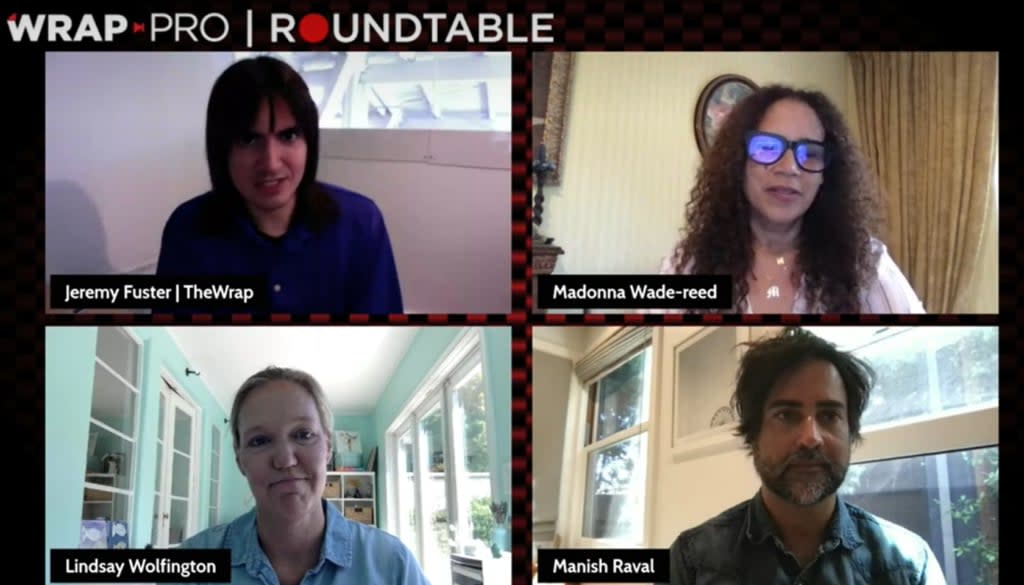WrapPRO Roundtable: Music Supervisors Put Metallica in ‘Stranger Things’… Now They Want a Union

- Oops!Something went wrong.Please try again later.
Thanks to Netflix’s “Stranger Things,” Kate Bush’s “Running Up That Hill” and Metallica’s “Master of Puppets” are soaring back to the top of the worldwide music charts decades after their initial release. Such pop culture phenomena wouldn’t be possible without the work of music supervisors, who are among the few workers in Hollywood without a union.
Madonna Wade-Reed, vice president of the Guild of Music Supervisors, joined WrapPRO for a roundtable discussion of the grassroots movement that emerged from the pandemic to create a union for music supervisors under IATSE. After going public earlier this summer, the campaign is trying to raise awareness about the poor wages and working conditions that music supervisors face as they juggle multiple film and TV projects at once.
“Nobody’s asking for a handout, just asking for something in the name of equality,” Wade-Reed said. “Everybody that works shoulder to shoulder on either side of us has health insurance, pension and welfare, regular paychecks, protections at work. We’re right there working beside them.”
Also Read:
Kate Bush’s ‘Running Up That Hill’ Music Video Crosses 100 Million YouTube Views Threshold
While some music supervisors are fortunate enough to get full-time employment at studios, the majority work on a freelance basis, meaning that they do not enjoy the healthcare and pension plans that members of IATSE and other Hollywood unions have.
Manish Raval, an Emmy-nominated music supervisor who has worked on “Girls,” “This Is Us,” and Oscar winner “Green Book,” also works as a music editor and thus has IATSE healthcare through the Motion Picture Editors Guild (Local 700). That makes the difference between the two jobs feel like night and day.
“I realized one day looking at my pension statement for my music editorial work…what would have happened if I was actually receiving a pension for the 20+ years I’ve spent as a music supervisor?” Raval said. “Why was I working as a music editor for about ten years alongside all of these other crafts, receiving a pension, and here I have 25 years of work [as a music supervisor] with nothing to show for it?”
While negotiating the rights and royalty payments for song usage is a major part of a music supervisor’s job, it’s not the only one. Oftentimes, a song that a director wishes to use in a project has royalty rates that are too high for the production budget. At this point, the music supervisor becomes not just an expert in music law and finance but also an artistic contributor to the work, using their knowledge of music to find a song suitable to the director’s vision with royalties that won’t break the bank.
“It’s more than just knowing songs. It’s understanding that original musical idea and figuring out why does it work,” said Lindsay Wolfington, a USC adjunct instructor and music supervisor for the Netflix film “To All the Boys I’ve Loved Before.”
Click on the clip above to hear more from our panel of music supervisors on their ongoing labor campaign.

